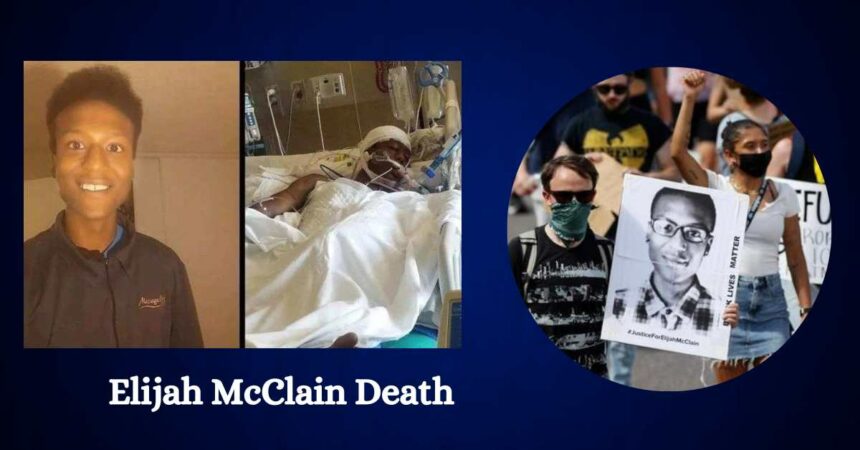A new wave of attention and investigation has been given to older cases in which people died after confrontations with the police, as fury over police brutality has exploded across the country in the wake of George Floyd’s death.
The killing of George Floyd has sparked widespread anger against police violence, and as a result, many cold cases involving deaths following police confrontations have received new attention and examination.
Elijah McClain Death
In the case of 23-year-old Black man Elijah McClain, who died in 2019, police in Aurora, Colorado, held him down with a chokehold that is now against the law. On the evening of August 24, 2019, while Mr. McClain was going home from a convenience shop, someone dialed 911 and reported that he “looked sketchy” because he was donning a ski mask and making threatening gestures.
Breaking: A Colorado police officer was convicted in the death of Elijah McClain, an unarmed 23-year-old Black man who died in police custody in 2019 after being stopped on his way home from a convenience store. A second officer was acquitted. https://t.co/1IeQ6GgNs1
— The Wall Street Journal (@WSJ) October 12, 2023
Once the police arrived, they employed a carotid hold, which cuts off blood flow to the brain and effectively knocks someone out. This was done to Mr. McClain after they had struggled to handcuff him.
After about 15 minutes, medical help arrived, and paramedics injected him with the potent tranquilizer ketamine. Mr. McClain suffered a heart arrest while being transported to the hospital. Later that week, he passed away.
Who was Elijah McClain?
Mr. McClain was a massage therapist who also happened to be a self-taught guitarist and violinist. Mr. McClain played the violin for homeless cats because he thought the music would help calm them. A photo of him doing so has since gone viral.
Sheneen McClain, Mr. McClain’s mother, started a GoFundMe to seek money for an investigation. She received over $2 million; also, over 5 million people signed an online petition requesting that the cops involved be removed from duty and that an investigation be conducted.
new: A jury has found Randy Roedema guilty of criminally negligent homicide, second-degree assault in the death of Elijah McClain. It found Jason Rosenblatt, the other officer on trial, not guilty. pic.twitter.com/pgrJCG82oE
— philip lewis (@Phil_Lewis_) October 12, 2023
McClain’s Cause Of Death Was A Central Issue In The Trial
The trial began last month, and witnesses included Aurora police officers who attended to the incident and doctors who examined McClain’s cause of death. The defense presented no witnesses. Body cam footage of the arrest was aired in court, with the prosecution claiming it proved the officers had used unnecessary or excessive force.
Uncover the Truth: Deep Dive into the Cause of Death in the Following Articles:
- Juliet Kadungure Death Cause: Honoring The Memory Sister Of Zimbabwean Icon Ginimbi!!
- Hungary’s Football Legend Sandor Kocsis Cause of Death At 49!!!
McClain complained of difficulty breathing several times, but the responding cops did not share this information. He was a man named Elijah McClain, and he was returning to his family. His presence was felt. Lyons, the prosecutor, set the tone for his argument with “He mattered” on Tuesday.
The trial centered heavily on determining whether or not the officers’ actions contributed to McClain’s death. A pulmonary critical care physician testified that the young man’s death could have been prevented if paramedics had noticed his problems and provided appropriate care.
In court, forensic doctor Dr. Robert Mitchell Jr. stated that McClain died from “complications following acute ketamine administration during violent subdual and restraint by law enforcement, emergency response personnel.” From what he heard, there was a “direct causal link” between the officers’ actions and McClain’s death.
Colorado officer found guilty in Elijah McClain death https://t.co/AXhSemN1Px
— BBC North America (@BBCNorthAmerica) October 12, 2023
The defense team, meanwhile, blamed the ketamine injection rather than the police for the man’s death. An updated autopsy report released in 2022 said that “complications of ketamine administration following forcible restraint” were the actual cause of death, despite the fact that the initial report stated that the cause of death was unknown.
The cause of death could not be established. The autopsy report’s signatory, Dr. Stephen Cina, said that there was no proof that injuries inflicted by police caused McClain’s death and that McClain “would most likely be alive but for the administration of ketamine.”
Prosecutor Jason Slothouber countered that while the cops did not inject McClain with the ketamine, his hypoxic and acidotic states were caused by the officers’ inability to protect his airway. Upon the arrival of paramedics, officers failed to provide them with accurate information, and as a result, they “failed Elijah McClain,” as stated by Slothouber.




